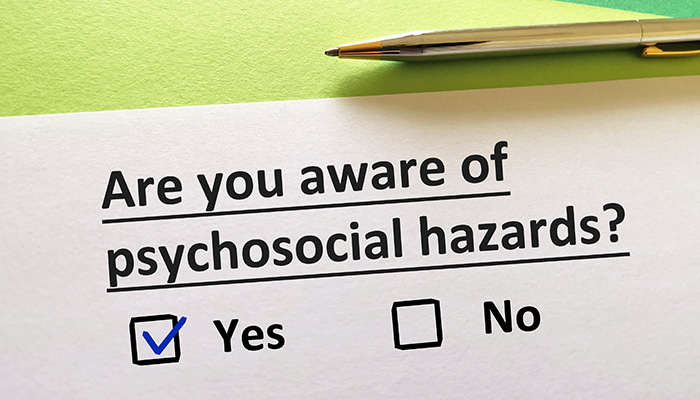Management of psychosocial hazards in the workplace
22 August 2024
The issue of psychological safety is receiving significant attention in all Australian jurisdictions. This is because mental health-related conditions continue to drive up business costs, including through employee absences, reduced productivity and workers’ compensation claims. With the increasing prevalence of these issues, there is a growing societal emphasis on the importance of better managing psychological hazards in the workplace.
Psychosocial hazards are factors that can increase the risk of work-related psychosocial harm (including stress). Examples of these hazards may include low job control, high and low job demands, inadequate support, inefficient organisational systems, and poor environmental conditions.
Safe Work Australia’s report on psychological health and safety in the workplace
In response to the heightened regulatory focus on this area, Safe Work Australia has released a report on psychological health and safety in the workplace aimed at assisting employers to manage these risks. The report explores the characteristics and trends of psychosocial hazards and mental health conditions experienced by workers across Australia.
The Safe Work Australia report provides industry analysis and discusses return to work outcomes for injured workers. It also offers insightful data about the prevalence of psychosocial hazards and how to address and manage concerns in the workplace.
Key points from the report:
- In 2021-2022, the highest proportion (27.5%) of approximately 10,000 serious mental stress claims was attributed to work-related harassment and/or workplace bullying, followed by work pressure (25.2%), and exposure to workplace or occupation violence (16.4%).
- Women were more likely than men to experience work-related psychological health issues.
- The public administration and safety industry showed the greatest percentage increase in claim numbers from 2017-2018 to 2021-2022.
The statistics set out in the report unsurprisingly indicate it was more challenging for those affected by psychosocial harm to return to work compared to those affected by other types of harm, partly due to the stigma around mental health issues.
A case study: how a working style can create psychological safety risks
In the case of Polley v WSP Australia Pty Ltd [2024] FWC 1156, Commissioner Simpson of the Fair Work Commission addressed psychosocial safety risks.
The Applicant claimed she was compelled to resign because the Respondent failed to protect her safety and did not adequately address her complaint about a male colleague.
The Respondent defended the claim by presenting evidence that they took the complaint seriously and had conducted an investigation which revealed that the colleague’s “disorganised” work style was creating a stressful environment, posing psychological safety risks. The Respondent also stated that they had implemented recommendations from the investigation to improve employee safety.
Commissioner Simpson agreed with the Respondent, and in dismissing the claim, acknowledged their efforts to address the Applicant’s concerns and improve the work environment. However, it was noted that if the employer had not demonstrated proactive measures to improve the workplace environment, the outcome could have been different.
How employers can be proactive in addressing psychosocial hazards
Employers should carefully consider the work environments they create and prioritise establishing a workplace culture that safeguards their employees’ mental health. Disorganised working styles can create psychological hazards and contribute to a negative culture.
As the number of mental health stress claims continues to rise, employers must take proactive measures to eliminate, or if not reasonably possible, minimise risks to employees’ mental health to the greatest extent possible. As the case of Polley highlights, this obligation extends to the steps taken in response to complaints or concerns raised by employees and matters identified in any investigation into such concerns.


